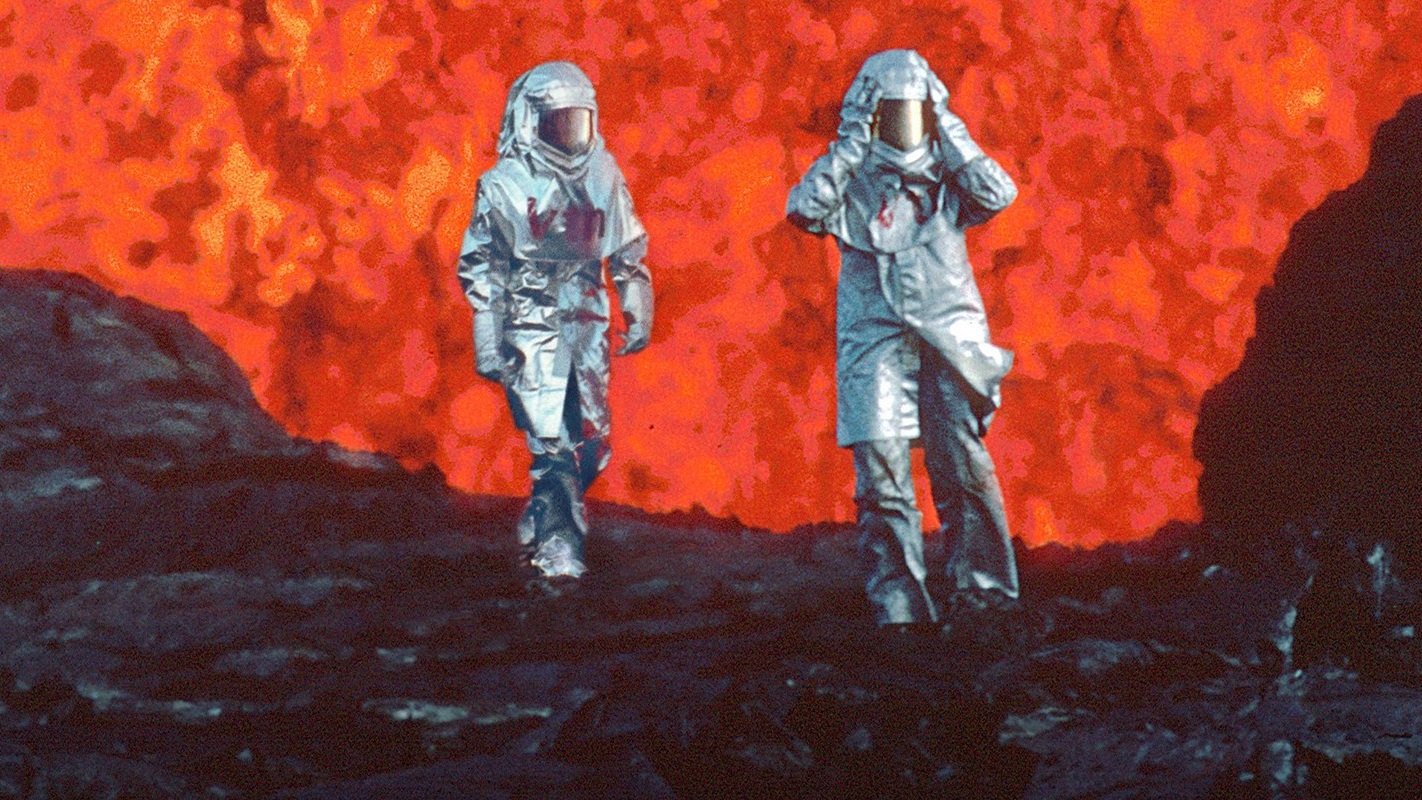Fire of Love
Sara Dosa’s volcanic film is both a love story and a documentary.
Both from Alsace, Katia and Maurice Krafft met in 1966 while studying at the University of Strasbourg and they married four years later. She was a geochemist while he was a geologist and before long they became well established as volcanologists who always worked together. Their passionate interest in volcanoes was born of intense curiosity about the mysteries inherent in that subject (so much remained unknown about volcanic activity) but was also seemingly spurred on by a shared disappointment in humanity (these two reached adulthood in time to join the many protests against the Vietnam war). Being well aware of how dangerous their work could be, they had decided from the outset that theirs would be a marriage without children. Indeed, it can be assumed that Maurice spoke for both of them when he said that he preferred the idea of an intense, short life to a long boring one: “It will kill me one day but that doesn't bother me at all”.
In the event the Kraffts would die together in Japan in 1991 when Mount Unzen erupted, but for a decade before that they had accepted what was clearly a higher risk in what they were doing. Having divided volcanoes into reds (the friendly ones) and into greys which they categorised as explosive killers, they opted to concentrate their studies on the latter category from 1980 onwards. Of the three hundred and fifty or so volcanologists in the world, we are told that some fifty chose to focus their work in that way. That was in order to learn more about when eruptions could be expected and to study volcanic hazards.
The most usual approach adopted in a documentary about volcanoes is to make them the exclusive focus but, as its title suggests, Sara Dosa’s Fire of Love is the exception to the rule. It embraces the idea that it is also a love story. Consequently, it offers a novel combination but one that proves not always to be successful. The emphasis on Katia and Maurice as a couple means that we want to learn more about them as individuals: what shaped them and what drove them to adopt their chosen lifestyle regardless of its risks. The fact that they filmed their expeditions and gave interviews has enabled Dosa to rely exclusively on archive footage, but this is at the cost of the film having no insights from others, no fresh footage in which friends and acquaintances help to give us a fuller and more rounded picture of them. We feel the lack of this because in what we see of the Kraffts themselves they are rarely introspective.
As if to compensate, Sara Dosa has supplied a narrative in English spoken off-screen by Miranda July. This is certainly helpful as a means of linking the existing footage together, but it adopts a rather high-flown romanticised tone to which I personally did not warm – at one point Katia is compared to a bird and Maurice to an elephant seal and briefly even the language of myth is invoked. For all the effort taken, we never feel intimate with the Kraffts. But, if the love story seems to be seen from a distance, when the emphasis is on the volcanoes and on their eruptions the images are quite as extraordinary as one might expect. In many cases they are simultaneously terrifying and beautiful. It's that aspect that wins through to make Fire of Love a memorable cinematic experience.
MANSEL STIMPSON
Featuring Archive footage of Katia and Maurice Krafft.
Dir Sara Dosa, Pro Shane Boris, Sara Dosa and Ina Fichman, Screenplay Sara Dosa, Erin Casper, Jocelyne Chaput and Shane Boris, Ed Erin Casper and Jocelyne Chaput, Music Nicolas Godin, Animation Lucy Munger and Rui Ting Ji.
Sandbox Films/Cottage M/Intuitive Pictures-Dogwoof Pictures.
93 mins. Canada/USA. 2022. UK Rel: 29 July 2022. Cert. PG.


